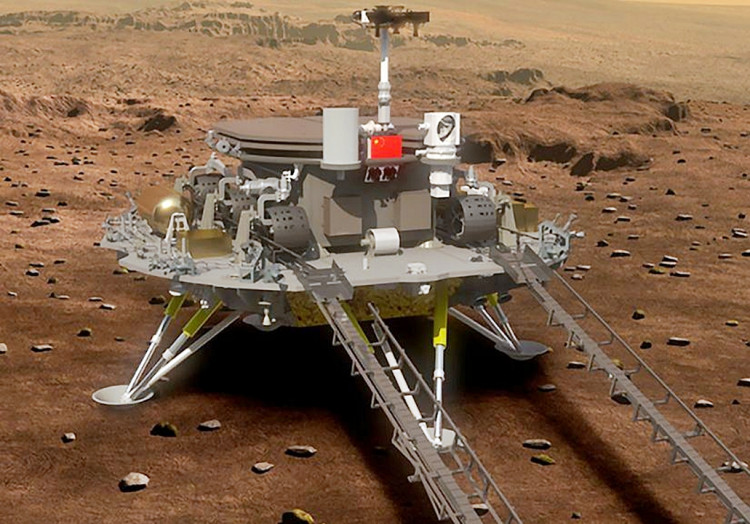China will follow-up its feat of becoming the only country to land a probe on the far side of the Moon with its second Mars mission in 2020. This mission will search for the presence of life on the Red Planet.
China's first Mars mission in 2011 failed, said the China National Space Administration (CNSA). This attempt saw CNSA attempt to fly an orbiter called Yinghuo-1 to Mars. This spacecraft, which was a payload aboard Russia's Fobos-Grunt mission, failed to leave Earth orbit and has been stranded in Low Earth Orbit since.
Yinghuo-1 was intended to be the first Chinese spacecraft to orbit Mars. It was to have studied Mars' surface, atmosphere, ionosphere, and magnetic field.
The honor of seeing the first Chinese spacecraft to orbit Mars now rests with the upcoming "Mars Global Remote Sensing Orbiter and Small Rover (HX-1)."
To be launched from the Wenchang Spacecraft Launch Site LC101 anywhere from July 23 to Aug. 5, 2020, HX-1 will consist of an orbiter and a rover. The launch vehicle will be a Long March 5 heavy-lift rocket.
The spacecraft is being developed by the China Aerospace Science and Technology Corporation (CASC) and managed by the National Space Science Center (NSSC).
The stated mission objective is to search for evidence of both current and past life and assess Mars' planet's environment.
Orbital insertion for the HX-1 orbiter is expected to occur from Feb. 11 to Feb. 24, 2021. The orbiter will be equipped with high-resolution cameras, a magnetometer, a spectrometer, and a radar.
The rover is expected to land on April 23 at an as yet undetermined site. It will be powered by solar panels. Once on the Martian surface, the rover will probe the surface with ground-penetrating radar, perform chemical analyses of the soil using special equipment, and look for biomolecules and biosignatures.
"Over the past 60 years, we've made a lot of achievements, but there is still a large distance from the world space powers. We must speed up our pace," said Wu Weiren, chief designer of China's lunar exploration program,
Wu claims China "will become the third country that is capable of such a task after the United States and Russia. Next year, we will launch a Mars probe, which will orbit around the Mars, land on it and probe it."





